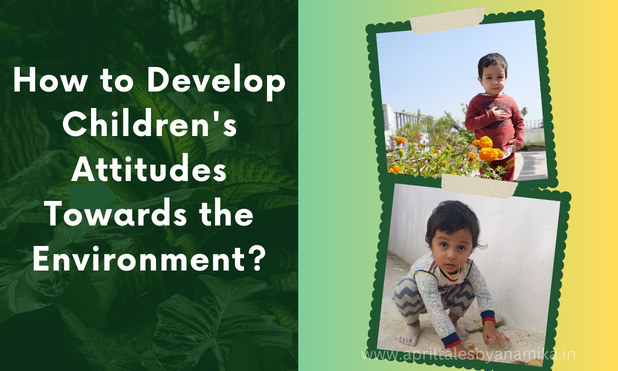Introduction
In today's world, developing environmental knowledge and responsibility in children is essential. As stewards of the world, it is our responsibility to provide the future generation with the knowledge and principles necessary for protecting our ecosystem. Developing children's attitudes towards the environment is vital not just for their well-being, but also for the sustainability of our planet.
Understanding Children's Developmental Stages
Early Childhood (Ages 0-5)
During the early years of a child's life, they are highly impressionable and absorb information like sponges. It is critical to expose them to nature and environmental themes through participatory activities and exploration. Simple activities such as gardening, nature walks, and wildlife observation can foster a sense of wonder and appreciation for the natural world.
Middle Childhood (Ages 6-11)
As children enter school age, their cognitive abilities expand, allowing for more in-depth exploration of environmental topics. Hands-on projects such as recycling initiatives, composting, and community clean-ups can engage them actively in environmental conservation efforts. Providing opportunities for environmental education both in and out of the classroom further reinforces the importance of sustainability.
Adolescence (Ages 12-18)
Teenagers are at a crucial stage where they begin to form their own values and beliefs. Encouraging critical thinking and empowering them to take action on environmental issues can have a profound impact. Involvement in youth-led environmental organizations, participation in environmental advocacy campaigns, and exposure to real-world environmental challenges help solidify their commitment to eco-conscious living.
Fostering Eco-Conscious Behavior
Lead by Example
Children often emulate the behaviour of adults around them. Modelling eco-friendly practices such as reducing waste, conserving energy, and making sustainable choices sends a powerful message. By incorporating environmentally responsible habits into your daily routine, you set a positive example for children to follow.
Encourage Outdoor Exploration
Spending time outdoors not only promotes physical health but also cultivates a deep connection to nature. Encourage children to explore natural spaces, whether it's a local park, hiking trail, or beach. Engaging in outdoor activities fosters a sense of awe and respect for the environment, nurturing a lifelong commitment to its preservation.
Provide Education and Resources
Access to educational materials and resources is vital for shaping children's attitudes towards the environment. Utilize age-appropriate books, documentaries, and online resources to facilitate learning about environmental issues and solutions. Encourage discussions and answer questions to deepen their understanding and inspire curiosity.
Empower Action
Empowering children to take action reinforces their sense of agency and efficacy. Encourage them to participate in environmental projects at school or in the community, whether it's organizing a recycling drive, planting trees, or advocating for policy changes. Recognize and celebrate their contributions, reinforcing the importance of their efforts.
Conclusion
Developing children's attitudes towards the environment is a multifaceted process that requires education, engagement, and empowerment. By fostering a deep connection to nature, providing opportunities for hands-on learning, and empowering children to take action, we can nurture a generation of eco-conscious individuals committed to safeguarding our planet for future generations.











0 Comments